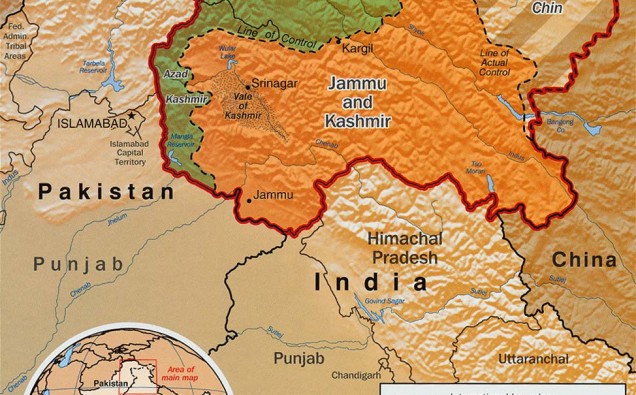
Pakistan and India traded allegations over Kashmir on Sunday, as both countries looked to voice their case on the longstanding dispute at the United Nations General Assembly session in New York next week.
Following months of Indian repression of Kashmiri demonstrations and killings in the territory under New Delhi’s control, deaths of 18 Indian soldiers in a suspected militant attack on a military base Sunday further inflamed South Asian tensions.
New Delhi quickly blamed Pakistan for the attack while Islamabad said India was trying to hide its state suppression of the people of Kashmir.
“Pointing fingers at Pakistan has become a traditional tendency of India after each terrorist attack,” Foreign Office spokesperson Nafees Zakaria said.
“In the past many Indians were involved in the terrorist acts for which India had blamed Pakistan,” he asserted, according to Dawn News, while denying any Pakistani role in the attack on the military base.
The Foreign Ministry came on the same day as Indian Home Minister Rajnath Singh alleged that Pakistan is a terrorist state, and that it should be isolated.
“I am deeply disappointed with Pakistan’s continued and direct support to terrorism and terrorist groups,” Singh tweeted.
But Islamabad said New Delhi can no longer cover up its suppression of Kashmiris, after it used brutal tactics including pellet guns to quell demonstrations.
“The whole world is looking at the Indian atrocities in India-held Kashmir and UN Human Rights Commissioner has also offered to send fact finding mission to Kashmir which India has rejected,” the Pakistani foreign ministry spokesperson added.
In Washington, the State Department condemned the attack on the Indian Army Brigade Headquarters in Uri.
“The United States strongly condemns the terrorist attack on an Indian army base in Kashmir during the early morning of September 18. We extend our condolences to the victims and their families. The United States is committed to our strong partnership with the Indian government to combat terrorism,” Spokesman John Kirby said.
Since violence plunged the disputed territory into violence, the United States has reiterated its support for Pakistan-India bilateral talks to resolve their differences.
At the UN General Assembly session, Pakistani Prime Minister Nawaz Sharif is expected to link durable peace in South Asia to resolution of the lingering Kashmir conflict.
Meanwhile, some reports said during Sharif’s address, India is working to help launch a protest by Balochistan insurgent supporters outside the UN Headquarters in New York to offset the focus on Kashmir. Kashmiris also take their case to thee United Nations each year.
For its part the United Nations has offered to media between two nuclear-armed neighbors, if both desire so. The UN Human Rights Commissioner has called for an independent, impartial and international commission to investigate killings in Kashmir.
Last month, Indian Prime Minister Narendra Modi and his government officials had publicly threatened Pakistan with stoking unrest in Balochistan – a strategic province bordering Iran and connecting Pakistan with the oil-rich Gulf through Gwadar Port built with Chinese support.
Washington has said it respects Pakistan’s territorial integrity and does not back Balochistan’s separation from the country. Analysts and expert also point out the difference between Kashmir, being a UN-accepted disputed territory and Balochistan, being part of Pakistan.












